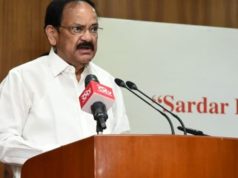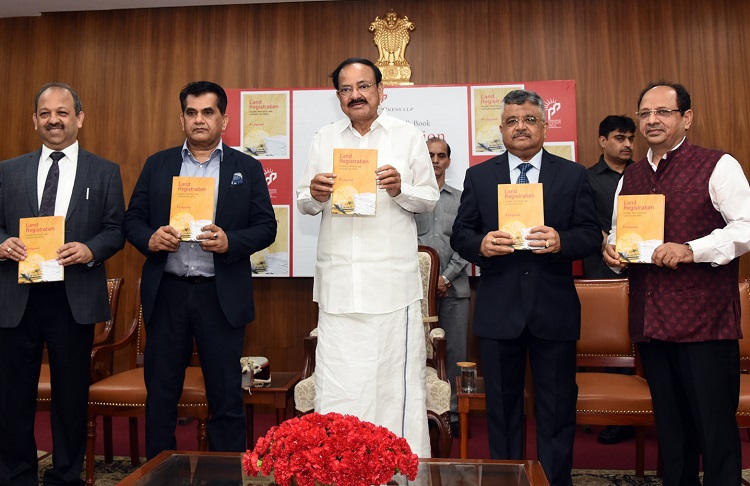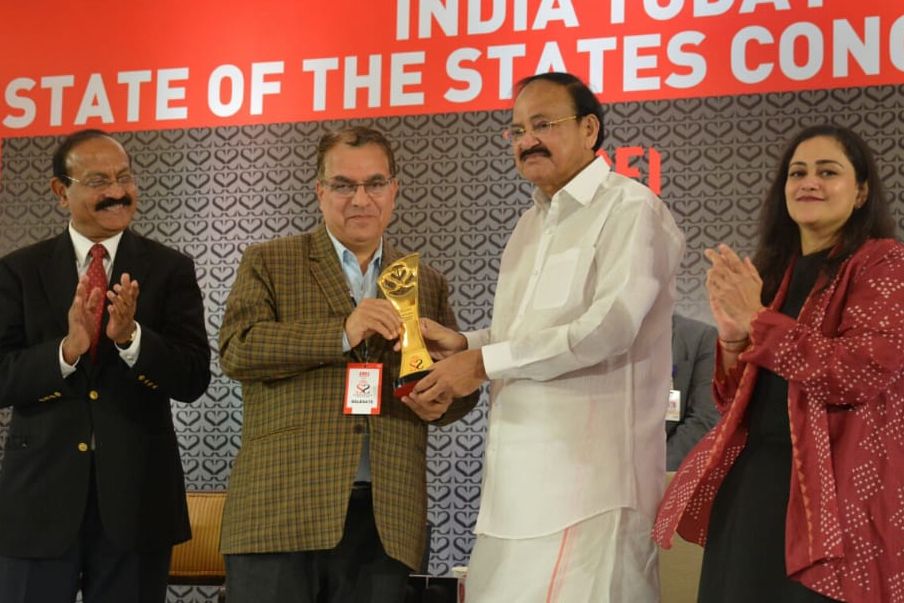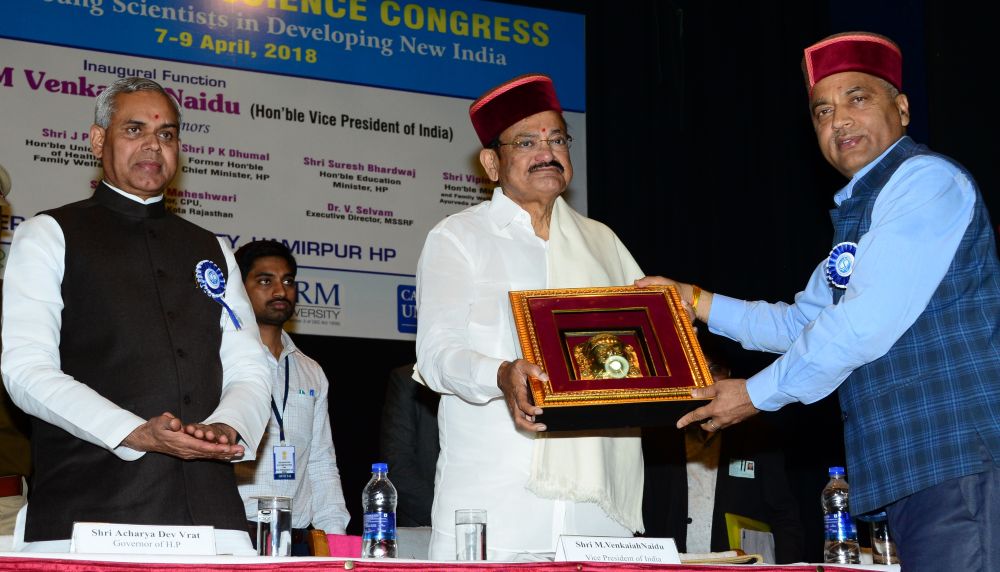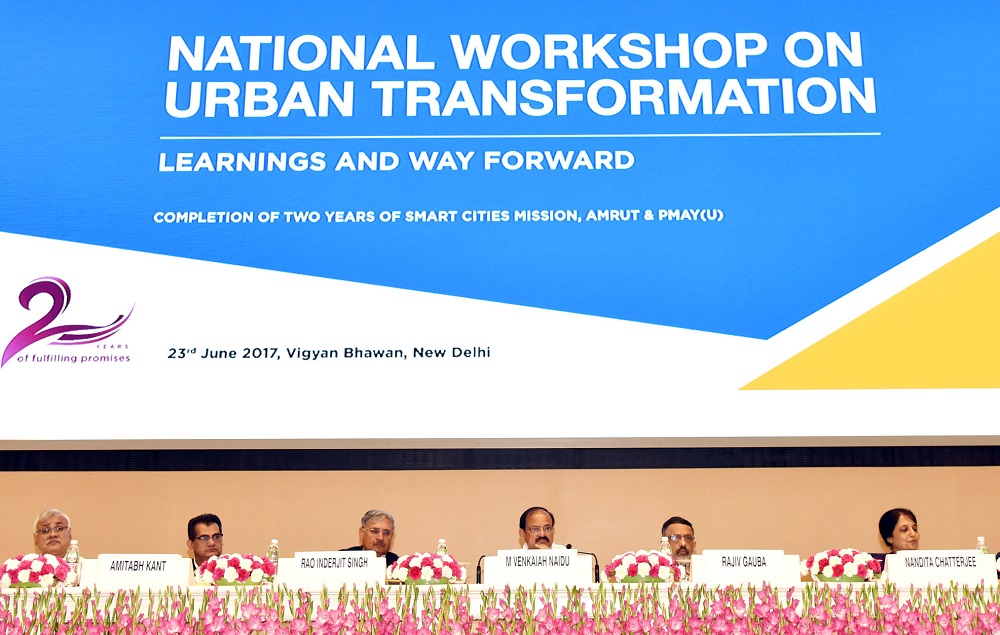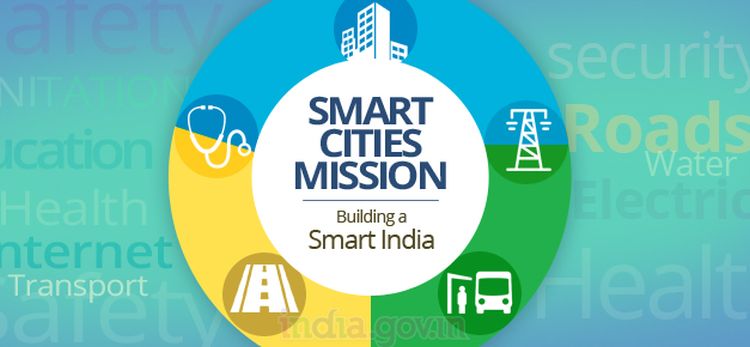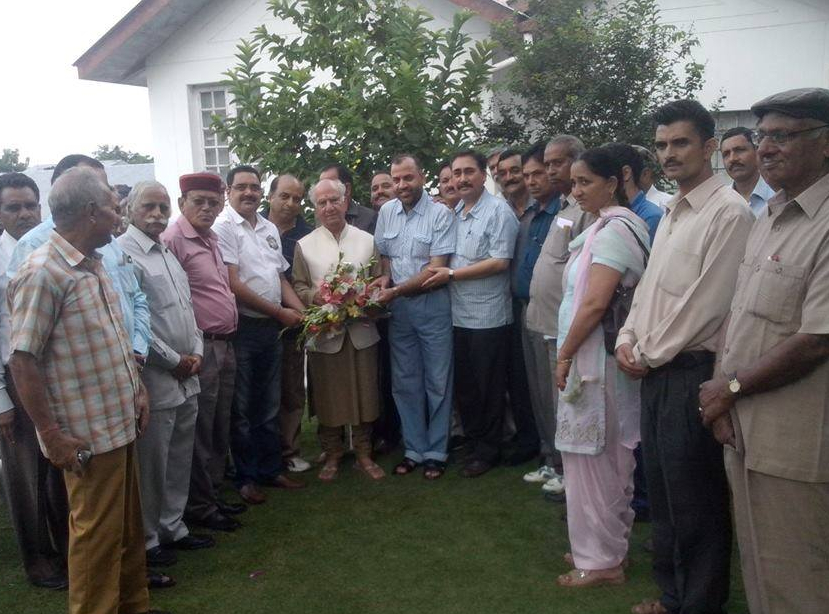VP asks parties to ensure attendance of half of their MPs; Proposes review of Anti Defection Law and Whip system
Seeks consensus on simultaneous polls and preventing entry of legislators with criminal records
New Delhi: Expressing concern over the functioning of parliamentary institutions in the country and erosion of public trust in them, the Vice President, M. Venkaiah Naidu today unveiled a 15-point reform charter as the basis for a new political normal to enable effective functioning of the Parliament and State Legislatures.
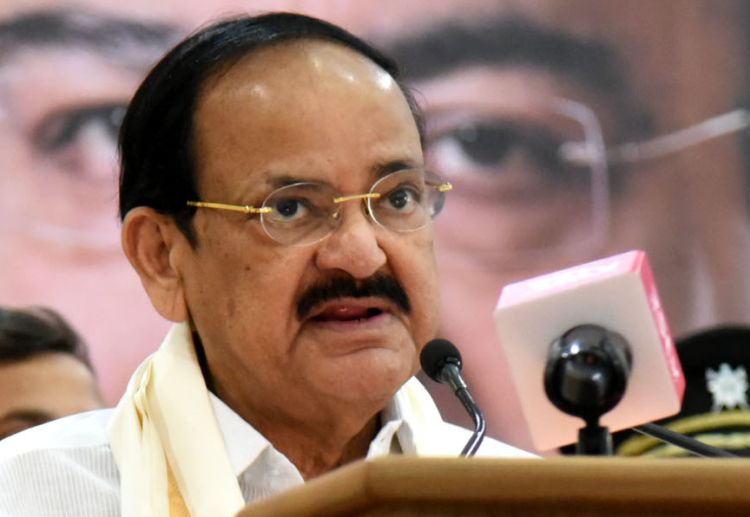
Vice-President dwelt at length on the present pitfalls of parliamentary democracy in the country while delivering the first ‘Arun Jaitely Memorial Lecture on Strengthening of Parliamentary Institutions in the Country’ at Delhi University today.
Venkaiah Naidu called for a new political consciousness advised stakeholders to review their mindset with regard to their roles and responsibilities. Expressing concern over poor attendance in the legislatures and the quality of debates, the Vice President urged the political parties to ensure attendance of at least 50 per cent of their legislators all through the proceedings of the Houses by adopting a roster system.
Naidu suggests a review of Anti Defection Law and Whip system
Responding to the concerns over stifling of the freedom of expression of the legislators due to issuance of ‘Whip’, Naidu called for a review of the same so as to enable a reasonable degree of dissent without impacting the stability of the government.
The Vice President also advocated a thorough review of the Anti-Defection Law to rectify the grey areas like incentivising legislators to resort to actions inviting expulsion from the party besides providing for time-bound disposal of defection cases by the Presiding Officer.
Referring to the long-held perception about the role of caste, community, region and religion in influencing the voting preferences in the country, Vice President Naidu stated that there is growing evidence to suggest the decline of such identity-based voting but it needs to be completely stamped out. Naidu noted
“While the Indian public has been steadfast in patronising democracy since the first General Elections in 1952 with ever-rising turnout, there is a need for new consciousness in the form of moving away from the remnants of identity-based voting to that of development-oriented exercise of voting preferences.”
Naidu also underscored the need for the governments to be responsive to the concerns of the Opposition and the Opposition to be responsible and constructive during the debates and while criticising the government and opposing legislation. He said
“Frequent disruptions, Points of Order without a point, Adjournment Motions and interruptions betray political immaturity, exhibitionism, excessive fondness for the limelight and inadequate appreciation of the need to utilise the opportunity of serving the public interest”
The other reform proposals of Vice President and Chairman of Rajya Sabha include building consensus on simultaneous polls to let unfettered governance, enacting for reservation of women in legislatures, making rules that automatically take effect against erring members in case of interruptions and disruptions, regular publication of reports by the Secretariats of Legislatures on the attendance of Members and their participation in debates, doing away with the winnability as the sole criterion for selecting contestants by the parties to address the concern of rising number of legislators with criminal record.


